What is a RoHS Battery Certification? RoHS (Restriction of Hazardous Substances) certification ensures electronic products’ safety and environmental friendliness. This article delves into the significance of RoHS battery certification and its impact on product safety and compliance.
Part 1. What is a RoHS Battery Certification?
A RoHS battery certification is a validation that a battery complies with the RoHS directive, which restricts the use of certain hazardous substances in electrical and electronic equipment. This certification ensures that the battery does not contain substances such as lead, mercury, cadmium, hexavalent chromium, polybrominated biphenyls (PBBs), and polybrominated diphenyl ethers (PBDEs) beyond specific thresholds. It confirms that the battery is environmentally friendly and safe for various electronic devices.
RoHS Certification Restricted Materials:
The RoHS directive prohibits using several substances in electrical and electronic equipment. These restricted substances include:
- Lead (Pb): < 1000 ppm
- Mercury (Hg): < 100 ppm
- Cadmium (Cd): < 100 ppm
- Hexavalent Chromium (CrVI): < 1000 ppm
- Polybrominated Biphenyls (PBB): < 1000 ppm
- Polybrominated Diphenyl Ethers (PBDE): < 1000 ppm
- Bis(2-Ethylhexyl) phthalate (DEHP): < 1000 ppm
- Benzyl butyl phthalate (BBP): < 1000 ppm
- Dibutyl phthalate (DBP): < 1000 ppm
- Diisobutyl phthalate (DIBP): < 1000 ppm
Part 2. Ufine battery RoHS-tested battery
Ufine Battery proudly offers a range of RoHS-tested batteries, ensuring our customers receive products that meet stringent environmental and safety standards. Each battery undergoes thorough testing to ensure compliance with the RoHS directive, which restricts the use of harmful substances in electronic devices.
Let me introduce you to what we have in our batteries:
3.2V 300mAh LiFePO4 Battery 503035
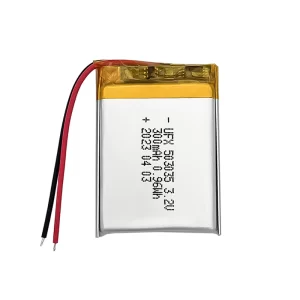
3.7V 35mAh Lithium Ion Battery 251416
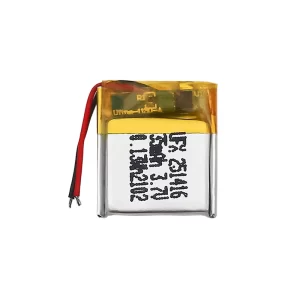
3.7V 1200mAh Lithium Ion Battery 103040
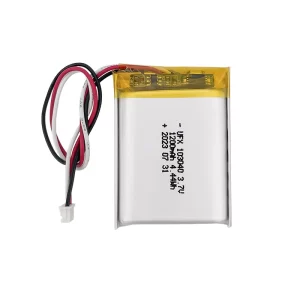
3.7V 2300mAh Low Temperature Battery 104050LT
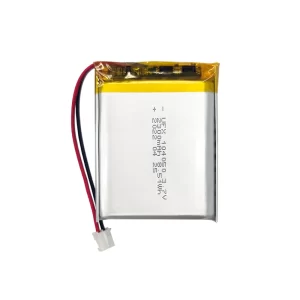
3.8V 5000mAh Lithium Ion Battery 6759104
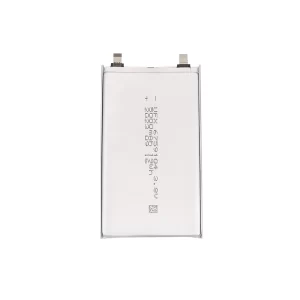
Part 3. The battery’s process for acquiring RoHS certification
3.1 Sample Collection and Preparation
Collection
We collect samples of battery components from the production line or storage area. These samples represent the materials used in battery manufacturing.
Preparation
We prepare the collected samples for testing by grinding, milling, or using other suitable methods to ensure homogeneity. This step ensures that the test results accurately reflect the composition of the battery components.
3.2 Chemical Analysis for Restricted Substances
Testing Procedures
The prepared samples undergo chemical analysis to detect the presence of restricted substances such as lead, cadmium, mercury, and others.
Acid Digestion
The samples may be subjected to acid digestion and treated with acids to dissolve the materials and release the target elements for analysis.
Inductively Coupled Plasma Mass Spectrometry (ICP-MS)
We use ICP-MS to quantify the concentration of restricted substances in the sample. This technique provides susceptible and accurate measurements of trace elements.
3.3 X-Ray Fluorescence (XRF) Spectroscopy
Principle
XRF spectroscopy is employed to analyze the elemental composition of the sample. Bombarding the sample with X-rays emits characteristic fluorescent X-rays, which we analyze to determine the presence of specific elements.
Instrumentation
A specialized XRF spectrometer is used for this analysis and can detect and quantify the elements present in the sample.
3.4 Atomic Absorption Spectroscopy (AAS)
Procedure
AAS is another method employed for elemental analysis. It involves measuring light absorption by the atoms of the target elements in the sample.
Atomization
The sample is atomized, typically through flame or furnace methods, to convert the elements into free atoms for analysis.
3.5 Documentation and Reporting
Results Compilation
The results of the chemical analysis are compiled, detailing the concentrations of restricted substances in the sample.
Compliance Assessment
Based on the test results, the battery components’ compliance with RoHS regulations is determined.
Reporting
A comprehensive report is generated, documenting the testing process, results, and compliance status. This report serves as official documentation for RoHS certification.
Part 4. What products does RoHS certification cover?
RoHS certification covers various products, including consumer electronics, home appliances, lighting, IT and telecommunication equipment, medical devices, automotive components, industrial machinery, and toys and recreational products.
|
Product Category |
Example Products |
|
Consumer Electronics |
Smartphones, tablets, laptops, desktop computers |
|
Home Appliances |
Washing machines, dishwashers, refrigerators, microwaves |
|
Lighting Products |
LED bulbs, fluorescent lamps, luminaires |
|
IT and Telecommunication |
Servers, routers, modems, telephones |
|
Medical Devices |
Diagnostic equipment, imaging devices, monitoring systems |
|
Automotive Components |
Electronic control units (ECUs), sensors, infotainment systems |
|
Industrial Machinery |
Manufacturing machinery, robotics, control systems |
|
Toys and Recreational Products |
Remote-controlled toys, electronic games, sports equipment with electronic features |
Part 5. Why is RoHS certification necessary?
Environmental Protection: RoHS certification helps protect the environment by reducing the use of hazardous substances in electronic products.
Compliance with Regulations: Obtaining RoHS certification ensures compliance with legal requirements and regulations in many countries and regions.
Market Access: RoHS certification is often a prerequisite for accessing international markets, enabling companies to expand their sales and distribution networks.
Brand Reputation: RoHS certification enhances a company’s reputation for producing environmentally friendly and safe products, increasing consumer trust and loyalty.
Supply Chain Management: RoHS certification promotes transparency and accountability in the supply chain, fostering better relationships with suppliers and customers.
Global Standards: RoHS certification contributes to harmonizing global standards for electronic products, facilitating trade and cooperation among countries.
Part 6. FAQs
-
What is a RoHS battery?
A RoHS battery complies with the Restriction of Hazardous Substances (RoHS) directive, which restricts using certain hazardous materials in electrical and electronic products. -
Is RoHS certification the same as CE?
No, RoHS certification focuses on restricting hazardous substances, while CE certification indicates conformity with health, safety, and environmental protection standards. -
Are RoHS and REACH the same?
No, RoHS restricts hazardous substances in electrical and electronic equipment. At the same time, REACH (Registration, Evaluation, Authorization, and Restriction of Chemicals) regulates the production and use of chemical substances in the European Union. -
Is RoHS certification required?
Yes, RoHS certification is required for products sold in the European Union to ensure compliance with environmental regulations and the restriction of hazardous substances. -
How long is a RoHS certificate valid for?
The RoHS certificate is typically valid for five years, although the specific duration may vary depending on regulatory changes and factors such as product composition. As a result, renew or update the RoHS certificate to reflect changes in compliance status.
Related Tags:
More Articles
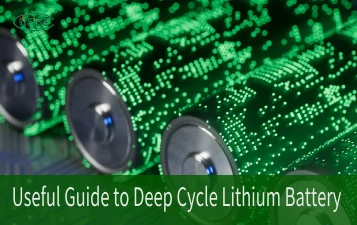
Overview of Deep Cycle Lithium Battery
In this article, we explore the life, voltage, capacity, and charging considerations of deep cycle lithium batteries.
How Long do Lithium Batteries Last?
How long do lithium batteries last? we will explore the factors that influence the lifespan of lithium batteries and provide insights into their longevity.
How to Choose the Best LiFePO4 Battery?
Choose LiFePO4 batteries for superior performance, safety, and versatility in EVs, UPS, and backup power. This guide helps you make informed decisions.
Get 12v Lithium Car Battery As a Power Source for the Ride
Make the right choice for your vehicle's battery needs by installing a 12 volt lithium car battery. You will enjoy maintenance-free longevity with this change.
Everything About A Small Lithium Ion Battery
Discover the features, uses & future potential of a small lithium ion battery. A compact and tiny powerhouse ideal for smartphones, wearables, drones & more.





